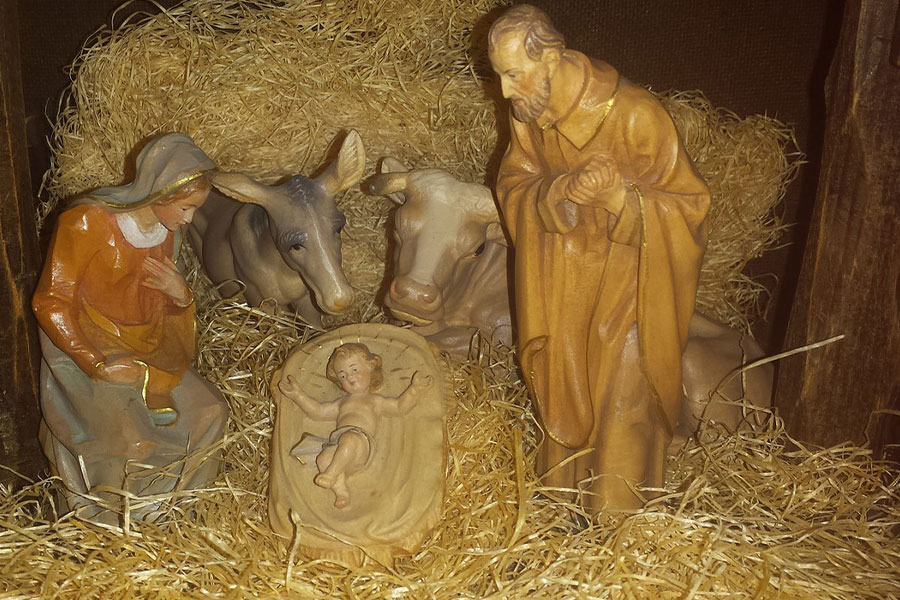His majesty is revealed in poverty

It is rather startling to realize the King of Kings, the Lord of Lords, the Savior of the World, the Word made Flesh, the very Son of God, was born and did not have His nursery all set up by His parents.
He did not even have a crib to be laid in. I know this is not new information, but it is still quite remarkable that the second person of the Holy Trinity had such a humble start to His life on earth.
Our typical paintings of this scene show it as well-lit in a sepia tone, with perfectly groomed animals, and a barn so clean you can almost smell the essential oils. But I imagine the reality was quite different. Anyone who has spent time in Lubbock knows when the wind blows a certain way you can whiff the “smell of money,” and they are not talking about ink and paper.
There is a stark contrast between how we imagined God’s advent on earth and the reality of the conditions He arrived in. And there’s something telling in that. He who is Majesty is revealed in poverty. He who is divinity is swaddled in humanity.

God loves every one of us the same, but He has always had a special heart for the poor. The Hebrew word for this group of people is Anawim. The Anawim are described as the poor of every sort: the vulnerable, the marginalized, and socio-economically oppressed, those of lowly status without earthly power. The word literally means those who are “bowed down.”
Jesus came into this world as a part of the Anawim. And He continues to have a heart for all those bowed down by the circumstances of their lives. Two thousand years after the Savior’s birth, some babies are born without cribs, without their Noah’s Ark-themed nursery, and all too often they are conceived and born to people so bowed down they do not even think they can care for the child.
The simple reality is many families need help when a pregnancy is discovered and after the baby is born. For the past 25 years, the Diocese of Fort Worth has offered the Gabriel Project (now in partnership with Catholic Charities Fort Worth). This initiative is in 23 parishes throughout the diocese and currently serves over 200 families. Its volunteers help on many levels, from accompanying these families and providing rides to doctor’s appointments, to helping them get the home ready for the new addition to the family, to providing supplies like maternity clothes, diapers, and baby clothing.
Camp Fort Worth, a service ministry camp for teenagers, has contributed to Gabriel Project by making more than 300 baby cribs over the last 20 years to help these babies, who, like Jesus, were in need of a place to lay their heads. Along with these very practical needs, Gabriel Project volunteers also offer Christian friendship and spiritual guidance to the expecting mothers.
Our Savior coming in such modest circumstances is in its own way a message for us and an opportunity to continually come to the Christmas crèche throughout the year and serve children and families who are the modern day Anawim. The Gabriel Project is a great place to start.
In addition to the Gabriel Project, other ways meet these needs. Many of us know single parents who can be helped in countless ways. Everything from helping with transportation, to mowing the lawn, to doing simple household maintenance. Even letting them know you are running to the store and offering to pick something up for them. Begin with prayer and then start small. Don’t come across like you’re the answer to all of their struggles. But with the guidance of the Holy Spirit you could be the answer to a prayer.
So, as we continue the Christmas season, take some time imagining Jesus, Mary, and Joseph in that stable and ask them to inspire you to answer the cry of the Anawim.
For more information about the Gabriel Project please visit www.gabrielproject.org at, or call Angela Walters at 817-789-0514.
